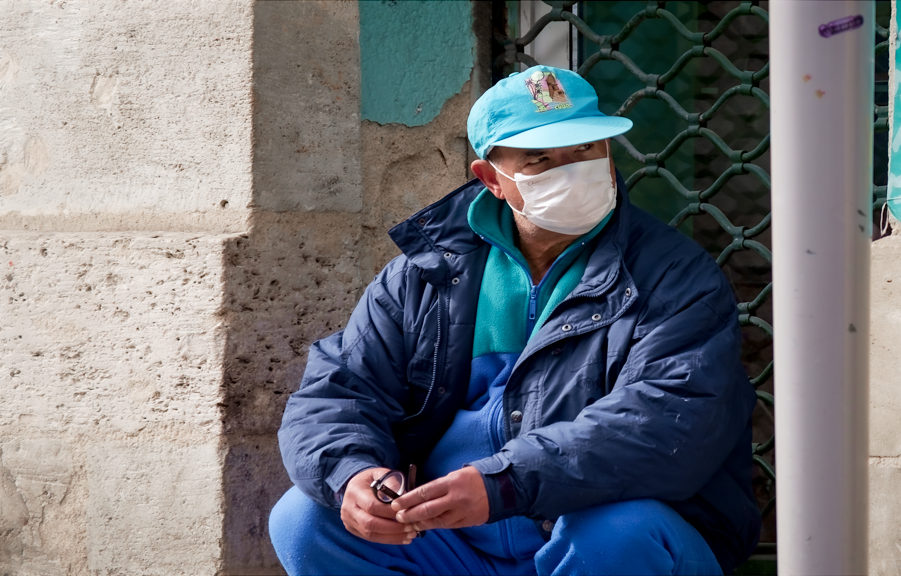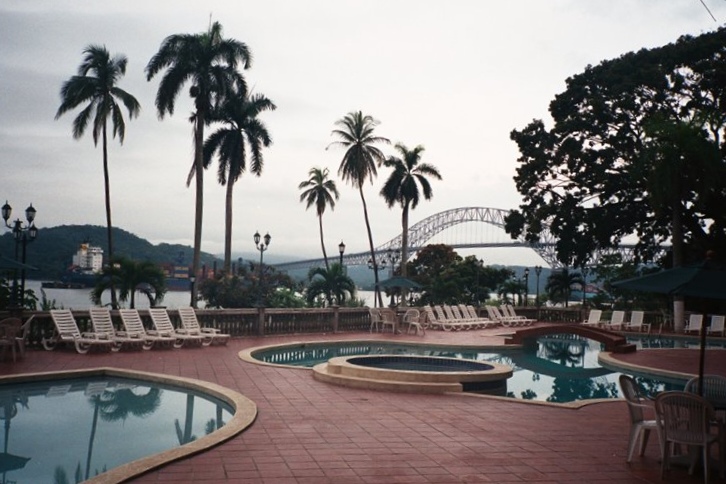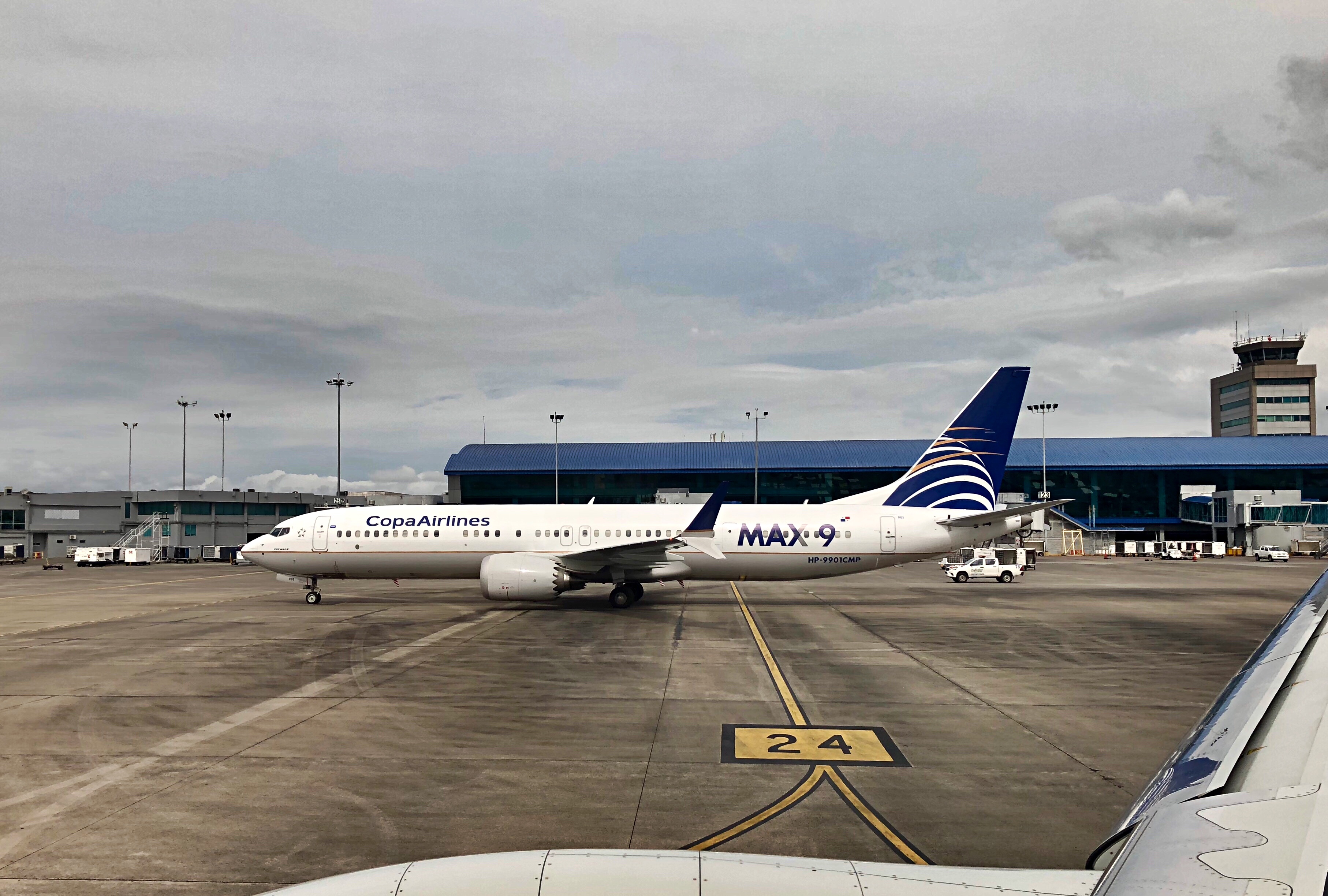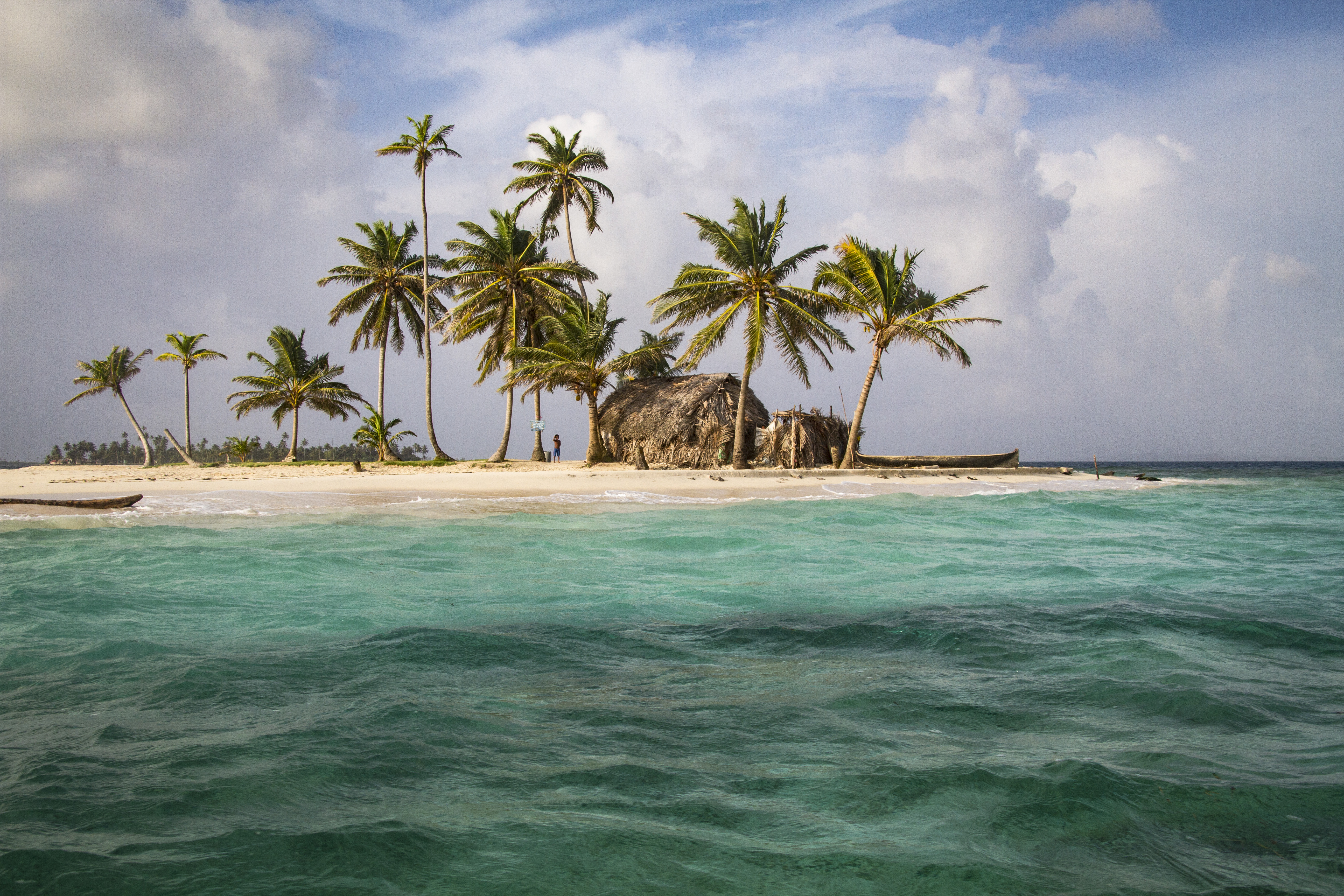27-04-2020
Panama, between uncertainty and hope of a future influenced by the coronavirus
Marta Salvador | Alba SudPanama, like the rest of the world, lives in a state of alert due to the pandemic of the COVID-19, which has led the country to take measures to prevent all the possible infections. These measures have also affected tourism, one of the main drivers of the Panamanian economy.

Photography by: Panamanian flag. Source: Rita Willaert, under licence of creative commons.
According to the official source of information of the Panamanian Republic, the country, on April 27th, 2020, reckons with 5.538 infected people and 369 recovered cases. Regarding the number of deaths, it is 159. As claimed by the late Marco A. Gandásegui, professor of Sociology at the University of Panama, the Ministry of Health (MINSA) has not detailed which is the socioeconomic profile of those who tested positive for coronavirus. However, Gandásegui confirms that the huge majority of cases come from the humble sectors of the capital which live in neighbourhoods with a high density of population. To detect new cases and to have data updated as afar as possible, Panama constantly tests its inhabitants. Concretely, it is the third country of the American continent that carries out more tests per million inhabitants, behind Canada and Chile. Although all these facts change every day and there is no possible estimation of future data in this country and neither the rest of the world, the alert for this pandemic is present in the whole Central American country. Nowadays Panama is impacted by the COVID-19 crisis, aggravated by its huge external openness and the high financial vulnerability at a global level. This pandemic has suddenly appeared in all countries around the world, with different response capacities of their health systems. In the case of Panama, from half of the nineties, health policies focused on the private business, increasing the huge investments in hospitals with public loans, putting aside primary attention and prevention as their main objectives. This has caused a deterioration of the public care system where the health guild and the labour movement permanently fight for the deprivatization of healthcare. As Beluche (2020) mentions, this global pandemic can be the first step towards public health as it is showing its efficacy, in a new world, more collective and democratic.
The March 9th Panama confirmed its first case of coronavirus and, from that moment, the Government started to detail all the information through a specific website for the coronavirus. Two days after the first infection, the Ministry of Education, together with the Health one, cancelled all the academic activities in schools and universities. In order to guarantee that the selling of food and products of personal hygiene and cleanings is controlled, the MINSA and the Ministry of Commerce and Industries (MICI) coordinated mechanisms to make sure all families have effective access without hoardings nor lack of provisions that create panic among the population. The March 13rd, with an alarming global situation, the Panamanian Government extremized sanitary measures and stablished effective national coordination of intensive care, habilitating more areas in all the hospitals and starting up a virtual consultancy clinic, the Program R.O.S.A, for all inhabitants. On the other hand, activities, acts and events were suspended except for those sport events with maximum assistance of 50 people. MINSA took all the responsibility to manage the embarkation and disembarkation in the port operations of commercial ships, but the arrivals of cruises were temporarily suspended with an observation of 14 days for those people disembarking in Panama. The Government also announced the suspension of commercial flights from Europe and Asia with exception of all those flights related to the transport of medicines, surgical supplies, medical equipment, vaccines and humanitarian help.
The visits to hospital centres were called off since March 15th and, one day later, the cease of all commercial establishments was ordered. The exception was supermarkets with a maximum capacity of 50 people, pharmacies, medical centres and establishments that sell health products, fuel and food. Regarding the restaurants, it is exclusively allowed the takeaway service or home delivery. On the other hand, access to beaches, rivers, swimming pools and public balnearies was prohibited, and hotels, casinos and other touristic accommodations had to close.
Since March 18th, Panama declared a curfew from 9 pm to 5 am. President Laurentino Cortizo started up the “Panama Solidarity Plan”that, with an initial donation of 50 million balboas (46 million euros), helps to distribute food and medicines among the most vulnerable groups of the country. The solidarity bonus are 80 balboas (73,6 euros), distributed into four bonuses of 20 balboas (18,4 euros) and they are aimed for families that have lost their jobs or workers that were in the informal sector. The authorities also informed about the decision of not applying any tariff for the products related to the measures of health and hygiene and the decision of supporting the banks to attend 70.000 small companies. Moreover, 40 million balboas (36,8 million euros) were aimed for the acquisition of medical equipment needed to attend patients of COVID-19. As Beluche (2020) mentions, it is questionable how the Panamanian Government is managing the millions of balboas aimed for the grants to palliate the effects of coronavirus. This money is added to the huge debt of the Panamanian economy that has to be paid off in some years, causing a reduction in the social expenses of the Government. Part of these investments has been destined to name new health professionals for home care and to broaden the network of laboratories for the detection of the virus. Increasing the preventive measures to avoid contagions, the Government established areas and special zones in the prisons of the country.

Men with a mask. Source: Patrice Calatayu, under licence of creative commons.
March 25th the curfew was enlarged from 5 pm to 5 am in the whole country, applying fines for all who violate the established rules or sanitary measures. The Panamanian Government has also extended the network of services to attend patients with coronavirus, moving some of them to hotels around the country, starting in the capital. In respect of the Panama Canal, the traffic of those ships that do not comply with the sanitary measures is prohibited.
April 1st, the National Government of Panama stablished new measures to protect the health of the population. These consist of measuring the traffic of people, conditioned by the gender that appears in the identity document of each inhabitant. Therefore, women can leave their homes on Mondays, Wednesdays and Fridays, while men can do it on Tuesday, Thursday and Saturday. It has been stablished that on Sundays the whole population has to stay at home.
April 3rd, President Cortizo announced the agreement with 35 of the most important financial companies of the country to postpone for 90 days the monthly letter, without consequences in their credit references neither charges for delays, although those who can pay have to do it in the usual term. On the other hand, the Ministry of Health informed that children with diagnostic of autism spectrum can leave their homes with their parents for 45 minutes, between 3 pm and 4 pm.
April 6th, MINSA in coordination with the Ministry of Commerce and Industries and the Ministry of Labour and Development (MITRADEL) informed that, to continue protecting the health of Minera Panamá, SA, workers’ health, the temporary closing of the mine was ordered, after the Industrial Union of Mining Construction and Mining Development Workers (STM) called for its closure as there were several infected and one dead from coronavirus.
April 11th new coercive measures were announced, as the population keeps violating the curfew policies. So, people who walk on the street without justification will be fined and community work will be imposed. Regarding the drivers, the driving licence will be suspended for three months and a tow truck will take away their vehicle. The April 21st, the Municipal Council of Panama approved the obligatory use of masks in the capital for all inhabitants outside of their residences and, in case of not obeying the rules, they would be sanctioned with fines of up to a thousand balboas (920 euros).
The Panamanian Government constantly reiterates in their declarations the grants brought with the “Panama Solidarity Plan”, affirming to have delivered more than 495.000 bags with food and almost 367.000 bonus on April 22nd. However, some communities of the district of La Chorrea, in the province of West Panama, have demonstrated to demand the promised grants, as they declare to have received only half of the corresponding bonus. Moreover, among the inhabitants of this community, there is a huge number of elderlies, children and disabled people that have not enough economic means to face the quarantine.
Tourism affectations for the coronavirus in Panama
Regarding tourism, the Government of Panama has also taken measures as the pandemic has evolved. First of all, the Ministry of Public Security, the National Service of Migration and the Authority of Customs coordinated the measures so that since April 12th cruises and other ships with tourists from the infected countries could not disembark nor embark in the national territory. Secondly, three days later, the closing of all commercial and non-commercial businesses was ordered, as well as leisure establishments related to the sector and touristic resources such as beaches, swimming pools, rivers and public balnearies. Since Sunday, March 22nd, arrivals and departures of international flights were suspended, managing the last humanitarian flights with Panamanians coming from different localitions of the world, that stayed in isolation to observe their state of health. With the ceasing of hotels, some of them made their beds available for transferring patients and to ease the collapse in the hospitals. Therefore, since March 27th, some hotels were conditioned for the observation and the treatment of patients, counting with sanitary professionals to attend the infected people. First, it started in Panama City and nowadays there are hotel-hospitals in Santiago, province of Veraguas and David, province of Chiriquí.

Hotel in Panama. Source: Luis Lobo Borobia, under licence of creative commons.
Another action that has taken place during this state of alarm is a touristic campaign of prevention for the COVID-19, created by the Authority of Tourism of Panama (ATP). In this campaign, natural beauties of the country are showed and it highlights among the best promotions that invite to captivate the attention of a potential traveller.
Tourism in Panama represents 11% of the.GDP.of the country, with an entry of foreign currency that annually brings 4.234 million euros. President of the Chamber of Tourism of Panama, Ernesto Orillac, has declared that the COVID-19 appears in a moment where the Panamanian tourism started to show signs of recovery after some years with a decrease of tourist arrivals and their expenses. Tourism also generates job positions classified by the Panamanian Government as direct and indirect works. The first includes hotels, restaurants and other touristic activities being a total of 38.794 workers. Regarding indirect jobs, there are 100.254 which means that the total number of tourist work is 139,048 employees (Government data from 2018).
The situation of workers in this state of alarm
This pandemic has clearly affected workers from the whole country and, specially, from the tourism and hospitality industry. March 20th, the Ministry of Labour and Development of Panama enacted some measures for the employers and employees of the country. On one hand, worker contracts of those companies that had to close due to the state of alarm have been suspended in all labour effects. This means that workers are not obliged to work and employers are not obliged to pay their wages. The employers have to request to MITRADEL the suspension of their workers’ contracts, who since this moment are included in the list of beneficiaries of the programs established by the Government to mitigate the lack of work incomes. In case that the suspension is not approved by the Ministry, the company is responsible for paying the salaries of all its employees. On the other hand, at the end of the national state of emergency, employees will return to their jobs under the same conditions established in the employment contract in force at the time of suspension. In order to guarantee these jobs, an attempt to prevent the return of the worker to his place of work on the day after the end of the state of alarm will be considered unjustified verbal dismissal. However, as Gandásegui states, the situation will be increasingly complicated for 85% of the population at the “base of the social pyramid”, understanding that there are 50% of informal workers and 35% of employees. Thus, the remaining 15%, made up of entrepreneurs, professionals and the country's elites will continue to maintain their high positions with low levels of taxation and, on the other hand, there will be the middle and lower class population which, according to Jonavé (2020), has been completely unprotected in the face of this state of alarm.
Concerning workers in the tourism sector, they have stated that they are a very hard-working group, given that the global pandemic has led to a halt in tourist flows. This has primarily affected the Hub of the Americas of the company Copa Airlines, a leading connection centre in Latin America, which serves 80 destinations in 33 countries and has had to suspend its operations temporarily. A concern within the tourism sector has come from the guides, who represent a total of 3,000 jobs in Panama. This group is completely helpless in the face of falling tourist arrivals and the consequent cancellations, as they are self-employed. Facing the projections of a reduced tourist season and with a smaller number of visitors, the guides claim to be considered part of the contingency plan established by the Panamanian authorities. Another group of workers affected is the transport drivers linked to tourism, who are concerned about recovery time, in addition to all the months of the state of emergency with no income.

A plane from Copa Airlines in the International Tocumen Airport of Panama. Source: airbus777, under licence of creative commons.
On the other hand, the informal labour of Panama, it is, those job positions that are not subjected to any contract neither affiliation to the social security, is an issue that keeps growing. The tourism industry is not foreign to this phenomenon and it includes those workers dedicated to the creation and selling of handicrafts. In fact, in the report of Análisis del sector Turismo y Artesanía of Panamà, written in 2017, it is quantified that just about 9.000 employees out of 200.000 dedicated to artisanal work are legally registered. Although it is not possible to determine the number of employees that are part of the tourism industry, it is well known that it is a feminized sector. Many indigenous communities warn that the coronavirus has had a high repercussion on the economy of their regions, especially in those dedicated to the production of handicrafts for the foreigners, that obviously at the moment do not have any sales.
Future projections for the Panamanian touristic sector
Ivan Eskildsen, the administrator of the ATP, has highlighted the necessity of uniting to work together and create proposals to be the first country attracting the international public. In order to stablish lines of work and new strategies, panel discussions with some presidents of the industry’s guilds to create have been formed to create the Alianza Pro-Recuperación of the Tourism Sector.
Ernesto Orillac, president of the National Chamber of Tourism of Panama (CAMTUR) believes that new projects need to be planned after the state of alarm, being creative and looking for a new way of showing the multiple attractions of Panama. For Orillac, it is crucial to count with the private sector to be able to work in a clear and well-defined long-term strategy that includes the positioning of the country and the creation of new circuits and internal products. To grant the continuity of the job positions in the tourism sector, banks and industry leaders are working together.
President of the Association of Operators of Tourism (APOTUR), Alexis Zapata, mentioned that for them the situation is complicated and, that in parallel with the subsistence of businesses, campaigns with a future vision have to be prioritized. In order to be prepared for the post-coronavirus scenario, Panama is working on a strategy to reactivate tourism in two stages. The first would be the promotion of internal tourism, taking into account that residents will be able to travel before and more easily than foreigners. The second would be the promotion to reach the international market, in a scenario that is predicted to be aggressive and highly competitive as all the countries will try to reactivate their own tourism industries.

San Blas Island. Source: Marc Veraat, under licence of de creative commons.
Moreover, Panama keeps working in the program “Desarrollo Urbano Integral de Ciudades con Vocación Turística”, recently approved by the National Economic Council (CENA) and the Cabinet Council with a budget of 100 million balboas (92 million euros) derived from a loan with the Interamerican Development Bank (BID). This huge amount of money would be invested, among other works, in the building and improvement of touristic infrastructures, the supply of tap water, and the integration of public spaces in priority destinations such as Boquete and Tierras Altas, in Chiriquí; Pedasí, in Los Santos; Santa Catalina, in Veraguas; Taboga, in the Capital City; and Bocas del Toro.
The objective of this program is to contribute to the urban and socioeconomic development of small and medium cities with a touristic vocation in the following axes: access and quality of their services and urban infrastructures, increase of touristic development with inclusive character, improving their equipment, tourism management and social cohesion; and reinforcement of the Authority of Tourism of Panama (ATP) in the planning, management and promotion of touristic cities. The project will have a duration of six years and will be under the leadership of ATP, with the participation of the municipalities and the Touristic Cabinet.
In front of this uncertain situation, the Panamanian authorities have a positive and hopeful attitude to recover the touristic activity of the country once this state of emergency is over. However, this effort should keep in mind the need to grant the labour conditions of the workers of the sector, who are currently in a situation of lack of income and worrying about their future. Therefore, Panama faces the dispute over how to manage tourism and the opportunity to lead the sector to a favourable improvement of its workers, as well as focusing on the preservation of the culture, the land and the life of Panama.
